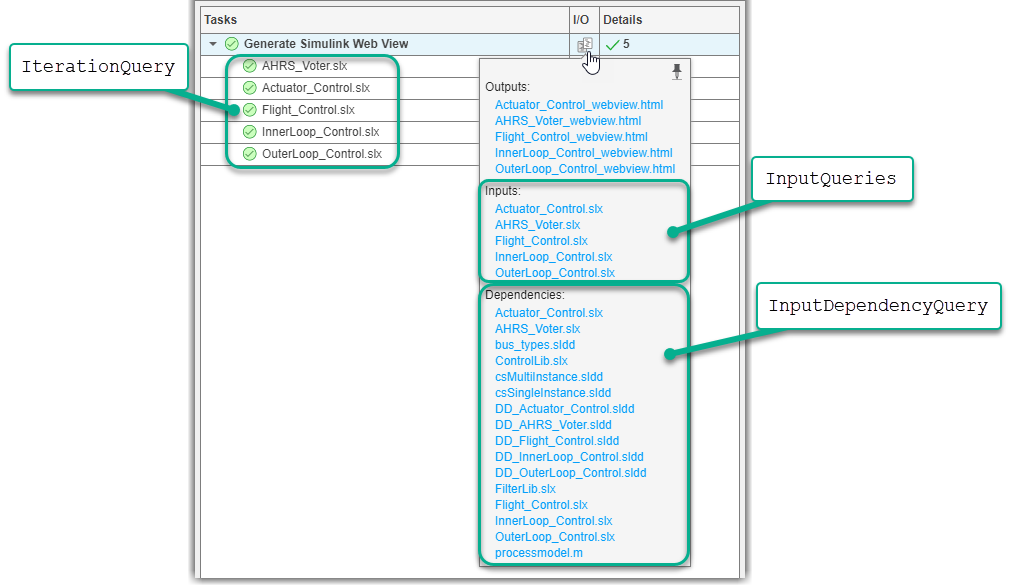padv.builtin.query.GetDependentArtifacts Class
Namespace: padv.builtin.query
Superclasses: padv.Query
Query for getting dependent artifacts
Description
The padv.builtin.query.GetDependentArtifacts class provides a query that
can return the dependent artifacts for a specific artifact. A dependent
artifact is an artifact that a given artifact depends on. For example, the
dependent artifacts for a model include the data dictionaries and library files that the model
references.
You can use this query in your process model to find artifacts for your task to use as
inputs. But typically, you use the GetDependentArtifacts query as the
InputDependencyQuery for a task to find additional artifact
dependencies for your task inputs, since those additional artifacts can also impact whether
the task results are up-to-date. For example, if you specify a model as an input to a task and
you use GetDependentArtifacts as the InputDependencyQuery,
the build system can find the related artifacts that the model depends on, such as data
dictionaries and other artifact dependencies. Then, you can view those dependent artifacts in
the list of Dependencies in the I/O column in
Process Advisor as shown in Find Related Artifact Dependencies for Task Inputs. For more information, see
Overview of Process Model.
The padv.builtin.query.GetDependentArtifacts class is a handle class.
Creation
Description
query = padv.builtin.query.GetDependentArtifacts()
query = padv.builtin.query.GetDependentArtifacts(IncludeRequirementLinkFiles=true)
Properties
Methods
Examples
Capabilities and Limitations
This table identifies functionality that is supported by the query.
| Functionality | Supported? |
|---|---|
Input query for task | Yes. |
Iteration query for task | No. |
